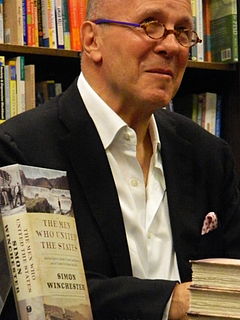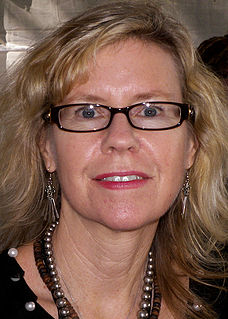A Quote by Theodore Roosevelt
The Bad Lands grade all the way from those that are almost rolling in character to those that are so fantastically broken in form and so bizarre in color as to seem hardly properly to belong to this earth.
Related Quotes
On those remote pages [of 'a certain Chinese encyclopedia'] it is written that animals are divided into (a) those that belong to the Emperor, (b) embalmed ones, (c) those that are trained, (d) suckling pigs, (e) mermaids, (f ) fabulous ones, (g) stray dogs, (h) those that are included in this classification, (i) those that tremble as if they were mad, (j) innumerable ones, (k) those drawn with a very fine camel's hair brush, (l) others, (m) those that have just broken a flower vase, (n) those that resemble flies from a distance.
All of those broken bones in northern Japan, all of those broken lives and those broken homes prompt us to remember what in calmer times we are invariably minded to forget: the most stern and chilling of mantras, which holds, quite simply, that mankind inhabits this earth subject to geological consent - which can be withdrawn at any time.
It may be said that the power of preventing bad laws includes that of preventing good ones; and may be used to the one purpose as well as to the other. But this objection will have little weight with those who can properly estimate the mischiefs of that inconstancy and mutability in the laws, which form the greatest blemish in the character and genius of our governments.
The telling of stories, like singing and praying, would seem to be an almost ceremonial act, an ancient and necessary mode of speech that tends the earthly rootedness of human language. For narrated events always happen somewhere. And for an oral culture, that location is never merely incidental to those occurrences. The events belong, as it were, to the place, and to tell the story of those events is to let the place itself speak through the telling.
The earth belongs to the living. No man can, by natural right, oblige the lands he occupied or the persons who succeed him in that occupation, to the payment of debts contracted by him. For if he could, he might, during his own life, eat up the use of the lands for several generations to come, and then the lands would belong to the dead, and not to the living. No generation can contract debts greater than may be paid during the course of its own existence.
Every chemical substance, whether natural or artificial, falls into one of two major categories, according to the spatial characteristic of its form. The distinction is between those substances that have a plane of symmetry and those that do not. The former belong to the mineral, the latter to the living world.
I'm with Milton and the Rolling Stones: I don't find the Devil an unsympathetic character. But in any case, my fiction is populated as much by people who do good as it is by those who do bad. I'm interested in imaginatively accommodating as much of the human as possible, for which you need both moral extremes and everything in between.
If the earth is man's extended body, to be loved and respected as one's own body, those who do no greening of themselves will hardly bring about the greening of America. The idea of 'greening' involves color, flowering, freshness of spring, and, above all, respect for what is organic and vegetative as distinct from the mechanical and metallic.

































